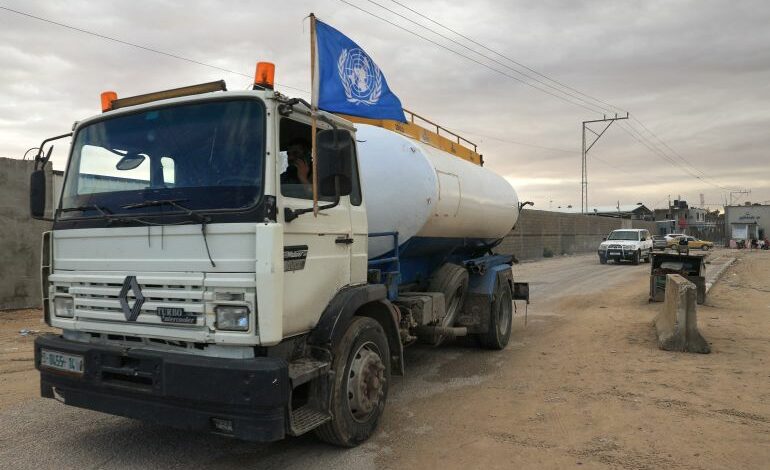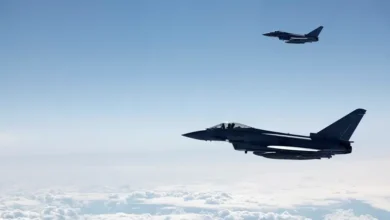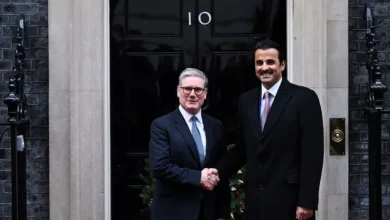Israel agrees to allow ‘minimal’ two trucks of fuel a day into Gaza

Israel is allowing two trucks of fuel into Gaza every day to keep the besieged enclave’s water and sewage system operational, as its forces continue their air and ground siege of the territory.
Israel’s war cabinet said 140,000 litres (37,000 gallons) of fuel could enter every two days after it received a “special request” from the United States.
Israel banned fuel supplies into Gaza when it launched a military campaign in the Strip on October 7. Acute shortages have threatened aid deliveries and communications.
Tzachi Hanegbi, national security adviser to Prime Minister Benjamin Netanyahu, said the fuel would be used to “operate the sewage and water systems run by UNRWA”, the United Nations agency for Palestinian refugees.
“We took that decision to prevent the spread of epidemics. We don’t need epidemics that will harm civilians or our fighters. If there are epidemics, the fighting will stop,” he said. Hanegbi described the quantity as “very minimal”.
A US State Department official, offering more details, said Israel had committed to allowing in 120,000 litres (31,700 gallons) of fuel every 48 hours for UNRWA’s trucks and other needs like desalinisation of water, sewage pumping and for bakeries and hospitals in the south of Gaza.
An additional 20,000 litres (5,300 gallons) every two days would be allowed in to power generators of telecoms company Paltel, which had warned of an imminent blackout of its cellphone network due to a lack of fuel.
Why allow fuel supplies now?
Reporting from occupied East Jerusalem, Al Jazeera’s Rory Challands said: “Tzachi Hanegbi is basically justifying allowing this trickle of fuel in, for a domestic audience, as a way of keeping the military operation going on in Gaza.
“He is saying pandemics, if they break out, would not just affect the population of Gaza but also affect Israeli troops and hurt their fighting ability. And he is also saying that this decision basically gives diplomatic space to Israel to carry on pushing that military offensive.”










